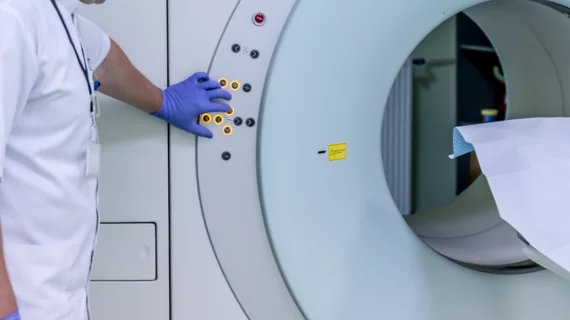Patient at Massachusetts hospital breaks facial bone after ‘freak accident’ in MRI suite
An MRI patient in Lowell, Massachusetts, sustained a facial fracture last month after a technologist at Lowell General Hospital Saints Campus introduced a metal hamper to the room, causing the hamper to fly toward the MRI’s magnet and strike the man in his face, the Lowell Sun reported.
The accident was the result of an equipment mix-up, according to the Sun—instead of rolling an MRI-safe hamper to the imaging suite, the technologist in question brought in a hamper meant for other areas of the hospital. All hampers at LGH are labeled, according to the report, but the tech didn’t notice the mistake “until it was too late.”
The hamper was brought into the MRI suite as the patient was lying down for a scan in mid-June. The machine’s powerful magnet immediately attracted the hamper, causing it to fly up toward the scanner and eventually hit the side of the man’s head. He was left with an orbital bone fracture.
“This is completely outside the norm for us because both organizations embrace rigorous safety training and education for staff,” Stephen T. Sweriduk, the medical director for Shields Health Care Group, which provides techs for LGH, said in a statement. “We have already met with staff to review best practices and ensure that we are doing everything possible to continue to foster a culture of safety across all of our clinical areas.”
According to the Sun, no legal action has been taken in the case. Shields is reportedly reviewing its safety protocols, and the technologist in question has been disciplined.
Read the full story from the Sun below.

